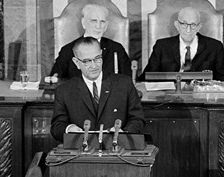Posted April 9th, 2013 by Jane-Coleman Harbison
Category: Living consequences, Popular Culture, Race and Ethnicity Tags: American South, Brad Paisley, Confederate battle flag, LL Cool J, Public history
Growing up in Nashville, Tenn., my sister and I spent hours on end listening to Mary Chapin Carpenter, Faith Hill, the Dixie Chicks, and other female country artists of the 1990s. With this soundtrack I came to believe all country music was about falling in love, getting treated badly by men, hating other women, and finding revenge. As a child I had no idea how many people in America associate country music with “Southern Pride” and the complex issues of race, history and identity that term entails. I only knew Confederate flags were bad. One of my best friends from elementary school, the daughter of a prominent African-American author and songwriter, told me the flags meant people wanted to bring slavery back. Naturally I henceforth regarded it with revulsion and fear.
When Brad Paisley begins his song “Accidental Racist” by saying his confederate flag t-shirt only means he’s a Skynyrd fan, I can’t help noticing how he disproves his entire point in the following verses of the song. He calls himself “a proud rebel son” and “a white man livin’ in the southland” and admits how he is unable to understand southern history from a black perspective. He understands how the confederate flag is offensive and yet still brandishes it across his chest out of a sense of pride in a past he knows was at least partially wrong.
Some lines in the Brad Paisley/LL Cool J collaboration are worthy of some praise for their apparent thoughtful consideration of how to remember the past whilst “caught between southern pride and southern blame.” Paisley is not proud of everything past generations of done, and he knows the nation is still “paying for mistakes that a bunch of folks made long before we came.” But despite this acceptance of the past as imperfect, both Paisley and LL Cool J express a disturbing desire to let bygones be bygones, sweep history under the rug, and attempt to solve the problems of today without engaging with the traces of the trade. Brad Paisley’s aversion to “walking on eggshells” reminds me of statements I’ve heard white southerners make when they don’t want to talk about slavery because they feel they can’t express opinions they know to be offensive or hurtful. For these people, avoiding the eggshells is an excuse for ignoring the issue all together.
Like Paisley and Cool J, “I just want to make things right,” which is why I study the history of the slave trade and work at the Tracing Center. I am a southerner with a strong sense of pride towards my region and my identity, but I refuse to let the Confederate flag be the symbol of that pride. I am proud of bluegrass music, Harper Lee, Alex Haley, Ray Charles Mardi Gras, and cornbread. I am proud of the accomplishments of the Civil Rights Movement and less proud of how long it took us to get there. If our shame is located in our history, our pride can be found in how we engage with the traces of that history today. I therefore wholeheartedly disagree with the “Accidental Racist” verse, “the past is the past, you feel me,” and encourage country music fans everywhere to think critically about the problems in this song (aside from its melody and tempo, which are also worthy of criticism).
 There are two new studies out on public opinion and voting behavior which shed light on persistent questions about how much racial prejudice hurts black politicians, and in particular, President Obama’s approval ratings and his vote totals in the 2008 and 2012 presidential elections.
There are two new studies out on public opinion and voting behavior which shed light on persistent questions about how much racial prejudice hurts black politicians, and in particular, President Obama’s approval ratings and his vote totals in the 2008 and 2012 presidential elections.


 Today is the 50th anniversary of the War on Poverty.
Today is the 50th anniversary of the War on Poverty. Diversity experts often recommend that employers foster a variety of behaviors in racially diverse workplaces aimed at bringing employees closer together. These techniques can include hosting social gatherings and encouraging the informal sharing of personal information, and are intended to overcome racial and sociocultural barriers and to strengthen interoffice relationships.
Diversity experts often recommend that employers foster a variety of behaviors in racially diverse workplaces aimed at bringing employees closer together. These techniques can include hosting social gatherings and encouraging the informal sharing of personal information, and are intended to overcome racial and sociocultural barriers and to strengthen interoffice relationships. This morning, as ABC airs its full interview with juror B29 in the George Zimmerman case for the first time, Trayvon Martin’s mother says the juror’s most explosive comment, that Zimmerman “
This morning, as ABC airs its full interview with juror B29 in the George Zimmerman case for the first time, Trayvon Martin’s mother says the juror’s most explosive comment, that Zimmerman “